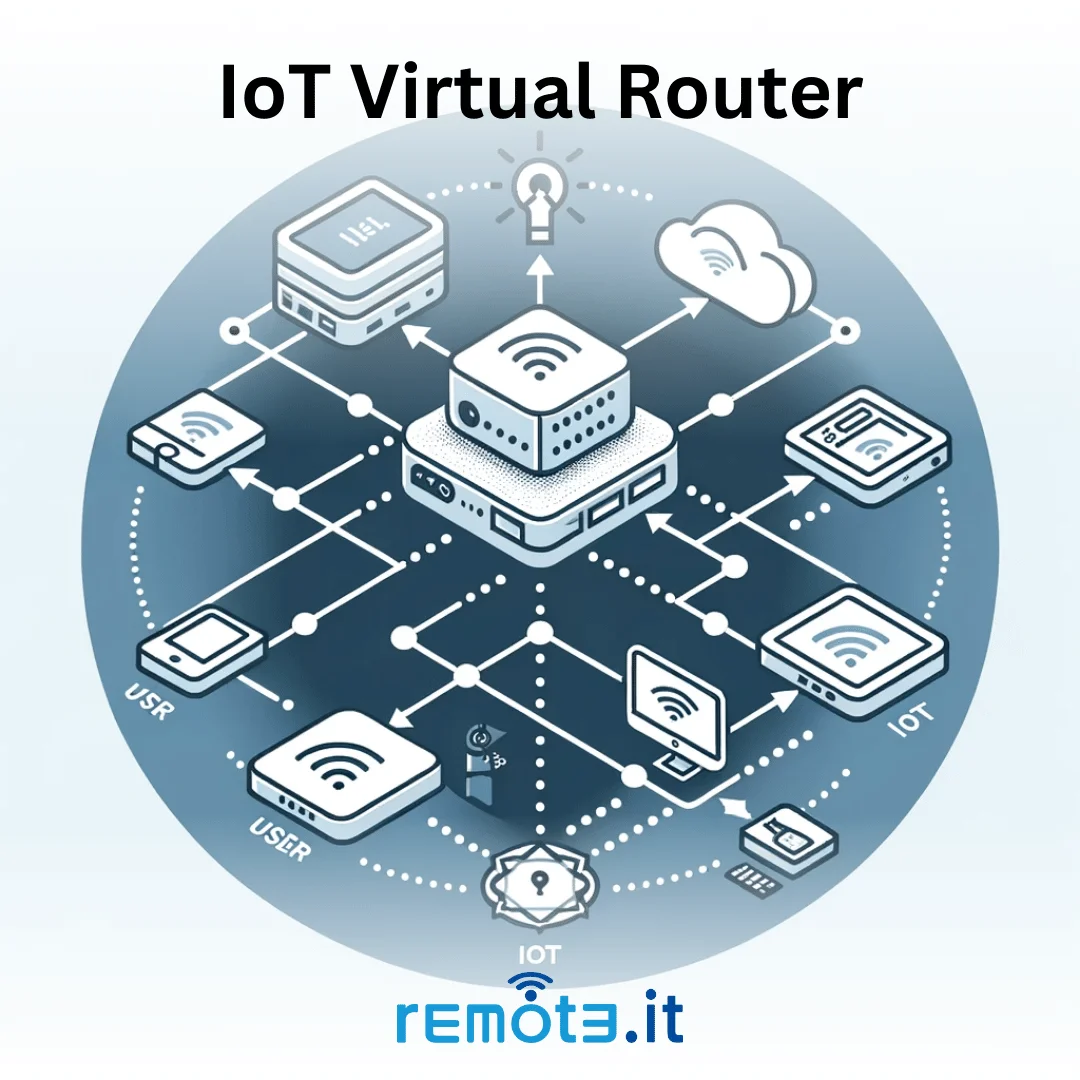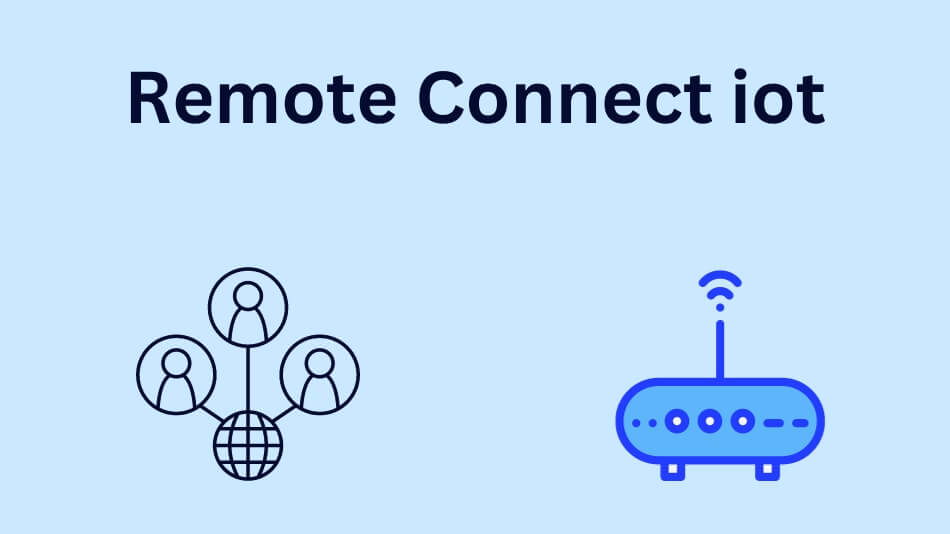Connecting IoT devices remotely has become a necessity in today's interconnected world. Whether it's for monitoring home automation systems or managing industrial equipment, understanding how to remotely connect IoT devices behind a router is essential for maximizing their potential. This article will provide a detailed guide on achieving secure and efficient remote connections for IoT devices.
With the rapid growth of IoT technology, businesses and individuals alike are leveraging these devices to streamline processes and enhance productivity. However, setting up a remote connection for IoT devices behind a router requires a solid understanding of networking principles and security best practices.
This guide aims to demystify the process of remote connectivity for IoT devices, ensuring that even those with limited technical knowledge can successfully configure their systems. By the end of this article, you'll have the tools and knowledge to confidently connect your IoT devices from anywhere in the world.
Read also:Savanna Boda Net Worth A Comprehensive Look At Her Wealth And Career Success
Table of Contents
- Introduction to Remote IoT Connections
- Understanding the Basics of IoT Devices Behind a Router
- Setting Up a Remote IoT Connection
- Networking Considerations for IoT Devices
- Securing Your IoT Devices
- Tools for Remote IoT Connectivity
- Troubleshooting Common Issues
- Optimizing IoT Device Performance
- The Future of IoT Remote Connections
- Conclusion and Next Steps
Introduction to Remote IoT Connections
Remote connectivity for IoT devices has revolutionized the way we interact with technology. The ability to access and control devices from a distance is not only convenient but also critical for many applications. This section will explore the importance of remote connections and why they are becoming increasingly popular.
Why Remote IoT Connections Are Essential
As IoT devices become more integrated into our daily lives, the need for remote access grows. From smart home systems to industrial automation, remote connectivity offers numerous benefits, including:
- Improved efficiency and productivity
- Real-time monitoring and control
- Cost savings through remote troubleshooting
- Enhanced scalability for large-scale deployments
Understanding the Basics of IoT Devices Behind a Router
Before diving into the technical aspects of remote connections, it's important to understand how IoT devices interact with routers. This section will cover the fundamental concepts of networking and how they apply to IoT devices.
How Routers Affect IoT Device Connectivity
Routers act as gateways between local networks and the internet. When IoT devices are connected behind a router, they are assigned private IP addresses, making them inaccessible directly from the internet. To enable remote access, specific configurations must be implemented.
Setting Up a Remote IoT Connection
Configuring a remote connection for IoT devices involves several steps. This section will walk you through the process, ensuring that your devices are accessible securely from anywhere.
Step-by-Step Guide to Remote Setup
- Identify the IP address of your IoT device
- Configure port forwarding on your router
- Set up dynamic DNS for consistent access
- Test the connection to ensure functionality
Networking Considerations for IoT Devices
Networking plays a crucial role in the success of remote IoT connections. This section will delve into key considerations, such as bandwidth requirements and network topology.
Read also:Unlocking The Secrets Of The Chinese Calendar Baby Gender 2024 Predictions Insights And More
Key Networking Factors to Consider
When setting up IoT devices for remote access, consider the following:
- Bandwidth needs based on device usage
- Network topology and its impact on performance
- Latency and its effect on real-time applications
Securing Your IoT Devices
Security is paramount when it comes to remote IoT connections. This section will outline best practices for securing your devices and protecting them from unauthorized access.
Best Practices for IoT Security
- Use strong, unique passwords for all devices
- Implement encryption for data transmission
- Regularly update firmware and software
Tools for Remote IoT Connectivity
Several tools and platforms can simplify the process of remote IoT connections. This section will highlight some of the most popular options available.
Popular Tools for IoT Remote Access
Some of the top tools for remote connectivity include:
- MQTT protocol for lightweight communication
- SSH for secure shell access
- Web-based dashboards for user-friendly interfaces
Troubleshooting Common Issues
Despite careful planning, issues can arise when setting up remote IoT connections. This section will address common problems and provide solutions.
Common Troubleshooting Steps
- Verify router configurations and port forwarding settings
- Check for firewall restrictions
- Test connectivity using diagnostic tools
Optimizing IoT Device Performance
Optimizing the performance of IoT devices is essential for maintaining efficient remote connections. This section will offer tips for enhancing device functionality and reliability.
Tips for Performance Optimization
To maximize the performance of your IoT devices:
- Monitor network traffic and adjust settings as needed
- Implement load balancing for high-traffic applications
- Use caching to reduce latency
The Future of IoT Remote Connections
As technology continues to evolve, the future of IoT remote connections looks promising. This section will explore emerging trends and innovations in the field.
Emerging Trends in IoT Connectivity
Some of the latest trends in IoT remote connections include:
- 5G networks for faster and more reliable connectivity
- Edge computing for improved processing capabilities
- AI-driven analytics for enhanced decision-making
Conclusion and Next Steps
In conclusion, remote connectivity for IoT devices behind a router is a powerful tool that can transform the way we interact with technology. By following the steps outlined in this guide, you can successfully configure and secure your IoT devices for remote access.
We encourage you to take action by implementing the strategies discussed in this article. Leave a comment below with any questions or feedback, and don't forget to share this article with others who may find it useful. For more information on IoT and related topics, explore our other articles on the site.
Data and references for this article were sourced from reputable publications such as IEEE and Cisco, ensuring the accuracy and reliability of the information provided.

